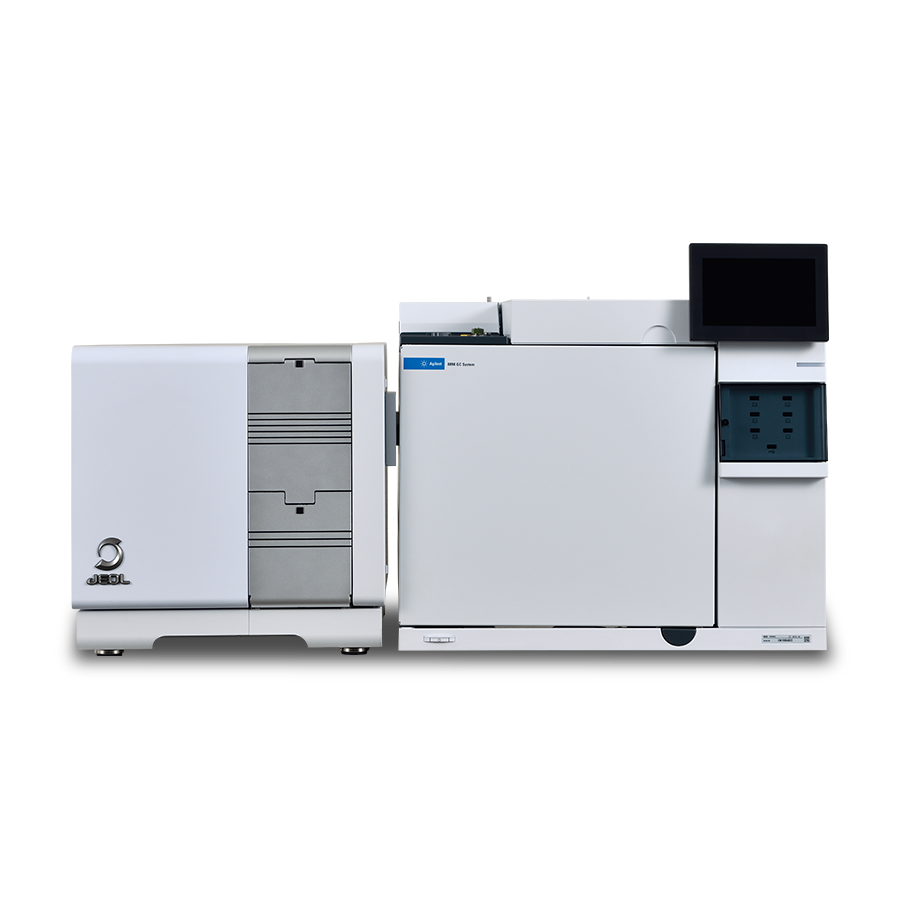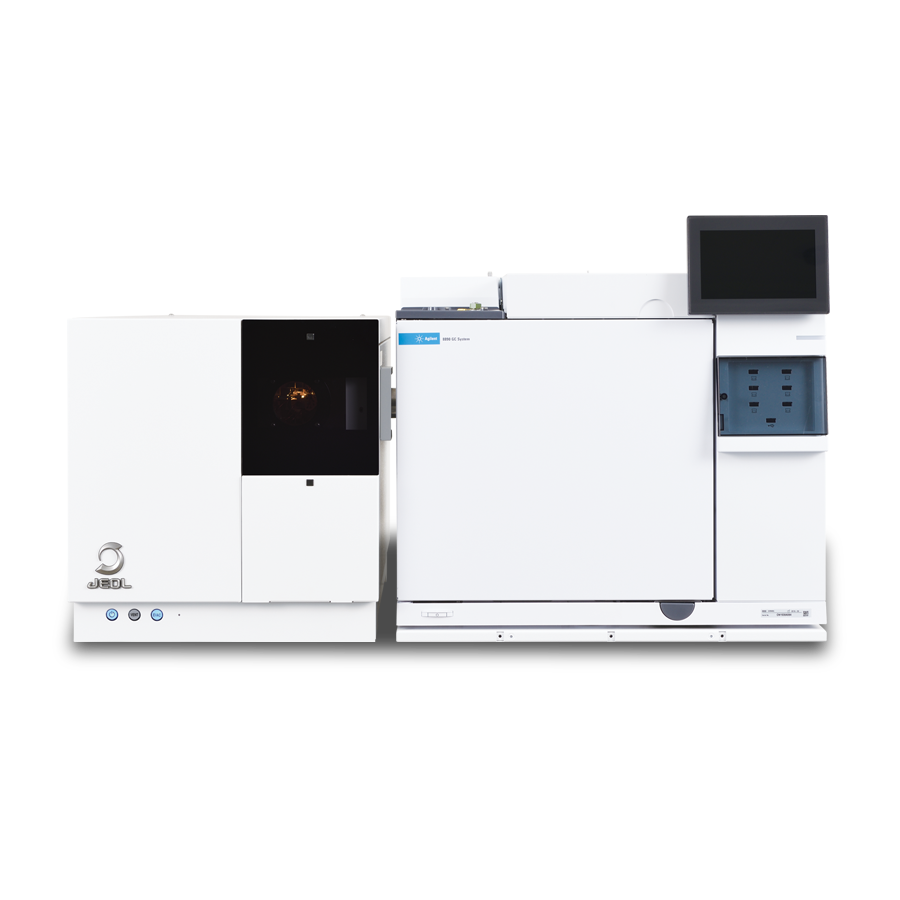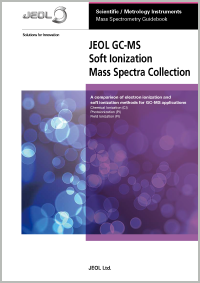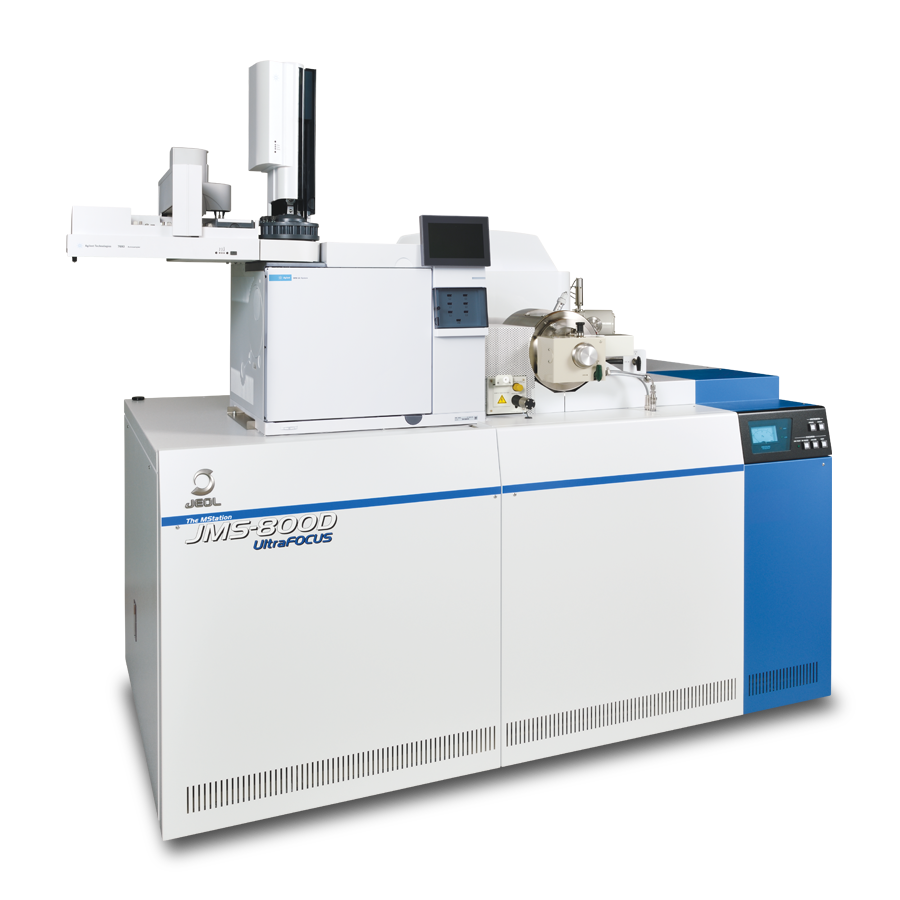Gas Chromatograph Mass Spectrometers (GC-MS)
Gas Chromatograph Mass Spectrometers (GC-MS) are able to be applied to qualitative analysis and quantitative analysis that are required in various fields including energy for green society, materials such as semiconductor and plastics, and environment and food for safety and security. This equipment is an analysis tool that is expected to become increasingly indispensable in the future.
We have a variety of lineups of GC-QMS, GC-TQMS, GC-TOFMS and magnetic field type MS to offer the best solution satisfying the customer's needs.
GC-MS Product List
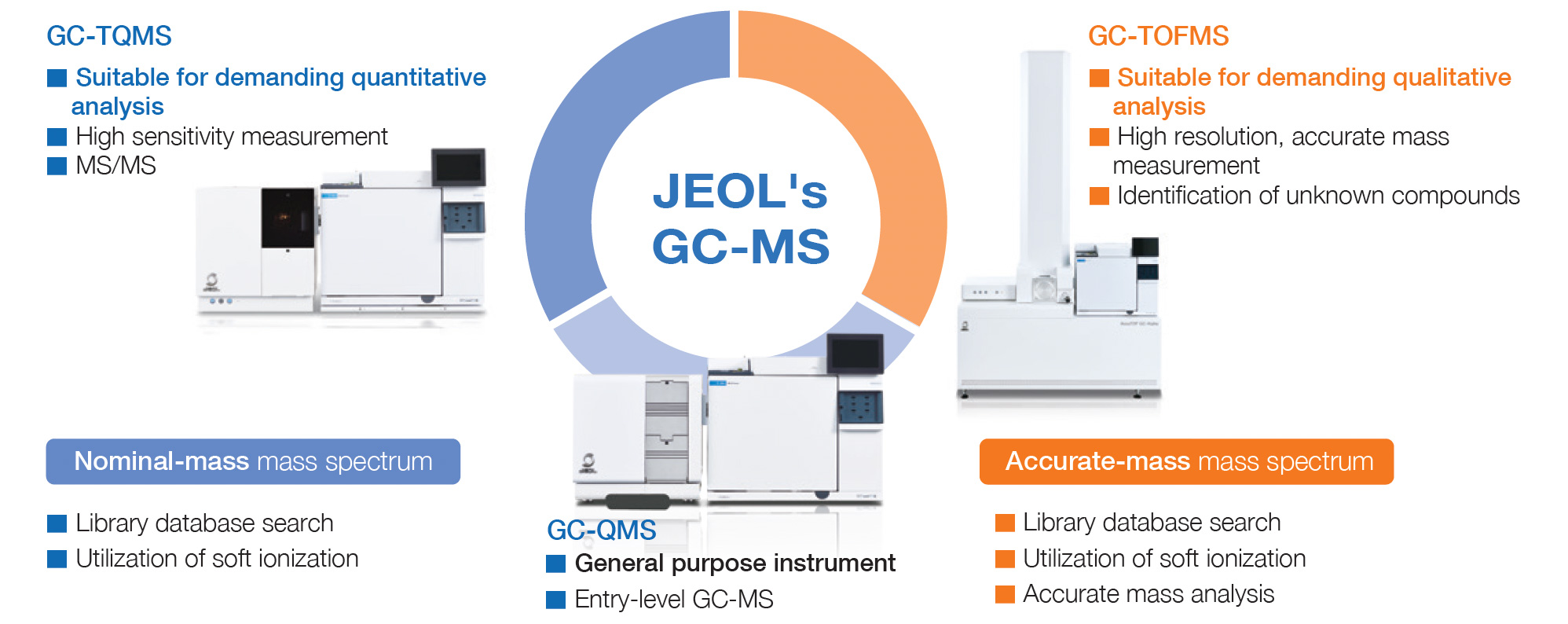

Gas chromatograph-time-of-flight mass spectrometer
JMS-T2000GC AccuTOF™ GC-Alpha
- Provide more advanced qualitative analysis solutions
- JEOL's unique and versatile multi-ionization sources
- Automatic analysis software to support unknown compound analysis
GC-MS Applications
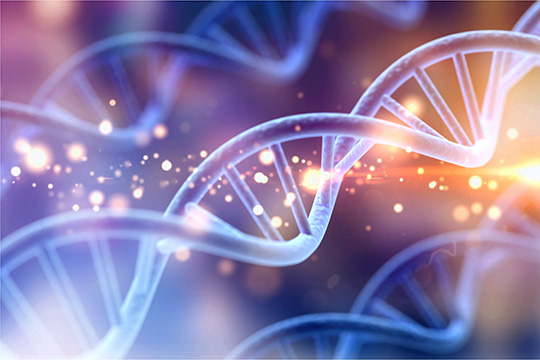
Biology / Life Science
Metabolomics is a vital branch of the "omics" sciences, offering deep insights
into biochemical processes. While LC/MS (/MS) is widely used, the GC/MS approach provides a unique
advantage: once metabolites are properly derivatized, GC/MS enables the detection of a vast array of
metabolite types in a single analysis.
The AccuTOF™ GC-Alpha GC - high mass-resolution TOFMS and the msFineAnalysis AI Ver. 3 software,
equipped with a comprehensive AI-predicted EI mass spectral library of 200 million compounds (including
75 million in-silico generated metabolite derivatives), empower researchers to identify previously
unknown metabolites with precision and efficiency.
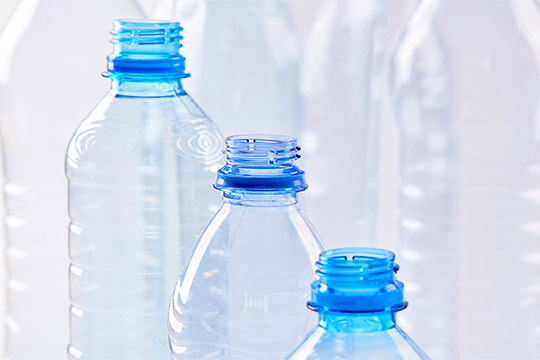
Plastics / Polymer
Accurate characterization of polymeric materials—including virgin, degraded, and
recycled forms—is essential for advancing a sustainable circular economy.
These application notes highlight advanced analytical techniques for investigating complex polymers
using pyrolysis GC-MS combined with AI-enhanced structural analysis. Readers will discover how
cutting-edge mass spectrometry, supported by in silico spectral libraries and deep learning algorithms,
enables precise identification of polymer pyrolyzates, additives, and degradation products.
The studies presented offer practical workflows that enhance material analysis, driving innovation in
polymer development, quality assurance, and failure diagnostics.
Analysis of recycled PET products by Pyrolysis-GC-TOFMS
Analysis of Polyethyleneimine using Field Desorption (FD) of GC-TOFMS
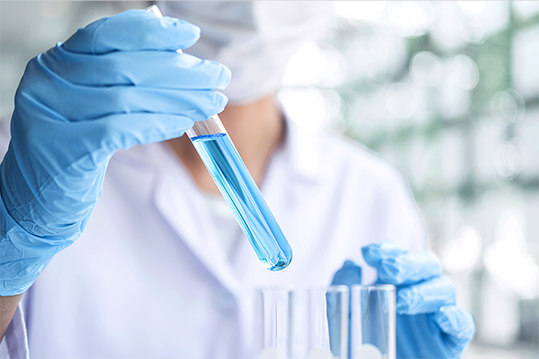
Chemistry
Structural confirmation of newly synthesized compounds is essential for
successful publication, while elucidation of unexpected byproducts is critical for optimizing synthetic
pathways.
These application notes showcase the integration of high-resolution mass spectrometry, AI-assisted
analysis, and NMR spectroscopy for precise structural elucidation of organic compounds.
Organic chemistry professionals will gain valuable insights into advanced workflows for verifying
complex molecular structures—particularly those with high boiling points or intricate
architectures—using direct MS probe techniques and predictive software tools.

Food / Plant
Flavor compounds play a critical role in determining the quality and consumer
appeal of food products.
These application notes highlight advanced GC-MS techniques for analyzing flavor, aroma, and other
quality-related compounds in complex food matrices. By combining electron and soft ionization methods
with AI-powered msFineAnalysis software, these studies demonstrate accurate identification of volatile
and semi-volatile compounds.
Food industry professionals will gain valuable insights into enhancing product quality, detecting
off-flavors, and verifying authenticity through high-resolution, automated mass spectrometric analysis.
Structure analysis of unknown compound in oyster using HS-SPME-GC-TOFMS
Analysis of the aroma components of spearmint essential oil by GC-TOFMS and AI structure analysis

Environment
High sensitivity and specificity are essential for accurate environmental analysis using GC-MS. While helium has long been the preferred carrier gas for achieving optimal chromatographic separation and sensitivity, its rising cost and unstable supply have prompted the need for alternatives. The following application notes showcase the unique capabilities of JEOL's GC-Quadrupole MS system, which delivers the high sensitivity required for environmental analysis using nitrogen—a safe, cost-effective, and readily available substitute for helium.
Analysis of Pesticides Using Low-Pressure GC-MS with Nitrogen Carrier Gas
Analysis of volatile organic compounds (VOCs) in water by HS-GC-MS Method

Energy
Advancing sustainable energy solutions requires both the optimization of energy storage systems—such as liquid and solid-state lithium-ion batteries—and the precise characterization of hydrocarbons in complex mixtures like crude oil and pyrolysis oil derived from recycled plastics. The following application notes demonstrate how JEOL's advanced GC-MS technologies contribute to these efforts, offering powerful analytical capabilities for both energy storage and resource recovery.
Analysis of Contaminants in Low Viscosity Solvents for Electrolytes in Liquid-LIB by GC-TOFMS
Rapid analysis of pyrolysis oil using blank tube-FI method and GC-EI/FI method of GC-TOFMS
Multifaceted crude oil analysis using GC-EI/FI, blank tube-FI, and FD on GC-TOFMS
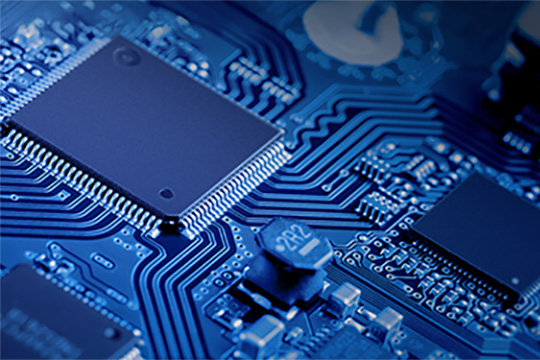
Semiconductor
Quality of reagents used in semiconductor fabrication is critical for ensuring
product yield and device reliability. Even trace impurities in cleaning solvents can compromise wafer
performance and lead to costly defects.
This application note introduces advanced analytical techniques for detecting and identifying impurities
in high-purity reagents, demonstrating how high-resolution mass spectrometry combined with AI-assisted
analysis supports cleaner, more reliable semiconductor manufacturing.

Petroleum and Petrochemical
Detailed characterization of hydrocarbons is critical for both conventional petroleum crude oil and sustainable alternatives derived from recycled plastics and biomass. The JMS-T2000GC AccuTOF™ GC-Alpha offers a comprehensive suite of capabilities to meet these analytical demands, including high mass resolution, Field Ionization (FI)—a unique soft ionization technique ideal for hydrocarbon analysis—and msRepeatFinder, a powerful software tool for group-type analysis of hydrocarbons. Together, these features enable precise and insightful analysis across a wide range of complex hydrocarbon matrices.
GC-MS Past Webinars
Automated structural analysis for the real unknown compounds by combining an artificial intelligence (AI) technology and GC-TOFMS system -Introduction of msFineAnalysis AI, an integrated qualitative analysis software-
Mass Spectrometry Guidebooks
These are JEOL MS guidebooks that contain useful information for everyone from mass spectrometry beginners
to experts.
In addition to basic explanations of GC-MS methods, ionization methods, etc., they also cover the latest
application examples.
Please use them for your first steps in mass spectrometry, to reconfirm your knowledge, or to train
newcomers within your company or institution.
JEOL GC-MS Primer - A Guidebook -
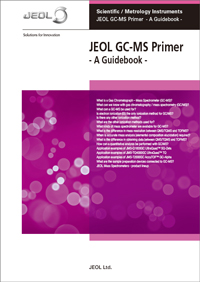
Gas Chromatograph - Mass Spectrometer (GC-MS) is a combination of Gas Chromatograph (GC) and Mass Spectrometer (MS) in which the MS acts as a detector for the GC. JEOL offers various types of GC-MS, such as Gas Chromatograph - Quadrupole Mass Spectrometer (GC-QMS), Gas Chromatograph - Triple Quadrupole Mass Spectrometer (GC-TQMS, a GC-QMS/MS), Gas Chromatograph - Time-of-Flight Mass Spectrometer (GC-TOFMS), and gas chromatograph - magnetic sector mass spectrometer, depending on the application. This guidebook explains the basics of GC-MS and the features and applications of different types of GC-MS in plain language.
Ionization Methods for JEOL Mass Spectrometers -A Guidebook-
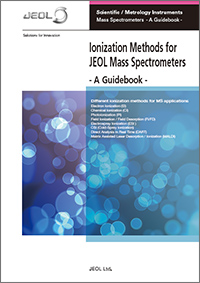
JEOL mass spectrometers support a variety of ionization methods, including ionization combined with chromatography, ionization using direct sample loading, hard ionization, soft ionization, etc.
This guidebook will describe the principles and characteristics of these methods and introduce their applications.
JEOL GC-MS Soft Ionization Mass Spectra Collection
Are you a medical professional or personnel engaged in medical care?
No
Please be reminded that these pages are not intended to provide the general public with information about the products.
DEVELOPMENT /
INSTALLATION CASES
Voices from our users are introduced in the form of interviews, installation cases, and development secrets. You may find some informative hints that can resolve your issue. Please do check them.
Contacts
JEOL provides a variety of support services to ensure that our customers can use our products with peace of mind.
Please feel free to contact us.


